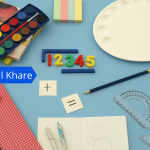Is Math unique to humans just like all the other subjects we have taught in school? If we have been teaching math our whole lives then it makes sense that math would be common. But unfortunately it is not common. In fact in many classrooms around the world, math is not even taught anymore. This should make you wonder: Is Math unique to humans or is it a subject taught only to animals? If it is a subject taught only to animals, then where did they learn it?
It’s a good question and one that scientists have been studying for decades. The short answer is that none of us have a brain in the same manner that animals do. There are some similarities though. All of us use parts of our brains that are similar to each other and some animals can use parts of our brains and animals that humans can’t. For instance, cats and dogs both use the left side of their brains more often than the right.
But the similarities stop there. Math is a universal language that can be used by any creature with a brain. Animals don’t learn math the same way humans do. And because of that, the way humans teach them math is very different.
When humans start teaching kids math, it is usually through mathematics DVDs or CD’s that are played over again. That’s because the visual part of the brain doesn’t need to be stimulated as much as the verbal part to really get children hooked. Kids respond better to math if they see it being done than just hearing it being described. Parents have been buying these videos for years with the hope that their child will finally understand the equation, the fraction, and the proof. Often times it works, but sometimes math turns into a nightmare for a kid because it is too easy to grasp the language and they get frustrated when they can’t apply the concept.
This is why it is so important to find a curriculum that incorporates math in an engaging way. If a child gets frustrated because all they can see is math being done, then they will soon lose interest. It’s almost impossible to hold a child’s attention to learn math if it is being done just verbally. Parents need to think of the visual appeal when they are teaching their children. This is why it is so important to choose a math curriculum that incorporates graphics, music, and movement.
It has also been shown that children who learn math the way animals do, not only retain the information better, but they learn it in a much more effective manner. When they are shown math problems to solve, they solve them the same way animals do. Animals are able to grasp objects because they can follow them and figure out what each part means.
Because children learn best when they are able to interact with their parents, it is imperative that there be an element of interaction when they are learning their math lessons. Parents need to take a role and help guide their children in the right direction. For example, if they are struggling to understand a problem, a parent should point out the meaning of each symbol or color. Math games on the TV are a great way for kids to learn how math works. Math games that incorporate real math problems are also a great way for children to learn new words.
Math is something that can be very intimidating for children. However, with a curriculum that incorporates math in a visually stimulating manner and through games, it is possible to teach kids how to really learn and to keep their minds stimulated long after school. Is math unique to humans just because it can be learned by animals?
Head office address:
Suite 1803, Al Moosa Tower 2,
Sheikh Zayed Road, Dubai, UAE.
Call for help:
+971 4 355 4850
Mail for information:
anilkhare3@gmail.com







